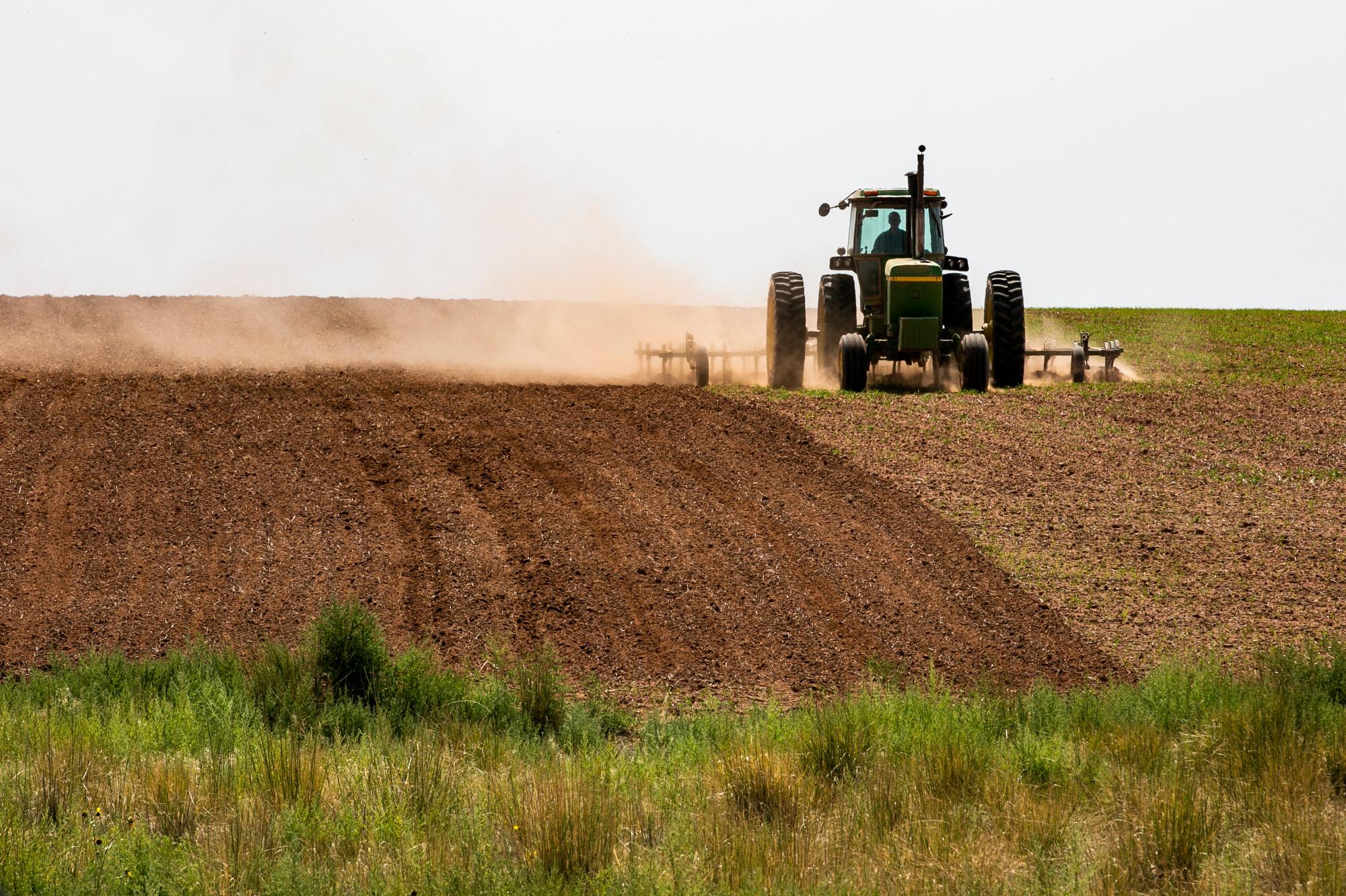
U.S. Sen. Michael Bennet unveiled a bill today that would reform a temporary guest worker program used by many agricultural workers and offer a pathway to citizenship.
The Affordable and Secure Food Act would provide H-2A visas for year-round jobs, set up a program for farmworkers and their families to earn legal status after 10 years of work, and establish a mandatory, electronic employment verification system for agricultural work nationwide.
“This may be our last, best chance to save family farms in this country, and all of us should come together,” Bennet, a Colorado Democrat, said at a press conference discussing the labor crisis the American agriculture industry has faced for years.
The bill would freeze the adverse effect wage rate, the minimum wage for U.S. or foreign workers in the agriculture industry, for 2023. Then, it would cap wage increases for 10 years at three percent
The number of year-round visas would not exceed 26,000 for the first three years and then for the next six years would only be increased by up to 15 percent over the previous year.
It would also clarify protections for workers, including mandating mediation before a worker can sue their employer under the Agricultural Worker Protection Act. It would also prohibit frivolous lawsuits.
This move, however, also shows the difficulty of getting anything immigration-related done.
For more than two years, Bennet and Republican Sen. Mike Crapo of Idaho had been working to come to a compromise on the issue using the House-passed Farm Workforce Modernization Act. This smaller bill is a sign that the effort has failed.
Bennet said he was “disappointed” and admitted there have been problems disentangling what this bill does with the politics surrounding border security and immigration writ large.
“I think we have to set that politics aside if we’re going to do the right thing for American agriculture,” Bennet said.
A Crapo spokesperson said the two lawmakers were unable "to reach a bipartisan agreement on critical employer-related components of the bill, despite their best efforts."
However, Republican Rep. Dan Newhouse of Washington, who joined Bennet and a couple of other representatives, said he was excited about this effort and that it was “past time for us to deliver solutions.”
“Let’s stop waiting, start acting,” he said. “We need to reform our broken immigration laws and this is a huge step and ensure those who wish to pursue a legal pathway or come to our country to contribute to our American agricultural industry can do that. We can protect our communities, we can strengthen our national security.”
And for farm workers like Maricela Martinez Juarez from Georgia, it’s an issue that can’t wait. With her son translating for her, she explained how she’s toiled for 15 years harvesting everything from oranges and strawberries to cabbage and potatoes.
“I love doing it. I love seeing the green of our vegetables, breathing the fresh air, and seeing our product grow,” she said. “My hope is that this bill will become a reality so that many farm workers like me are presented with new opportunities and we can continue to work here doing our jobs and living with our families.”
Still, it might take something of a Christmas miracle to get it passed, which even Bennet acknowledged.
If Bennet can get some Republican Senators on board, he said Democratic leadership assured him the provision can pass as part of an omnibus bill.
Top appropriators in the Senate and House Democratic caucus announced agreement on a topline number for the government spending bill, but have not released any details. And even now, it’s uncertain if the omnibus will pass this congress.
Republicans are slated to take control of the House in January. Even Newhouse admitted the “better chances” are to get the bill passed in the final days of the 117th Congress than the upcoming 118th Congress.
“It is inarguable that passing this legislation will be better for American agriculture than not passing this legislation. It is inarguable that this will be better for family farms than not passing this legislation. It is inarguable that this will be better for farmworkers if we pass this legislation than if we don't,” Bennet said. “The consequence for not passing it is going to be devastating for our country.”








